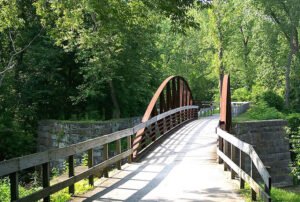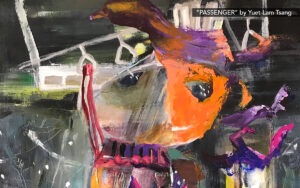Rebecca Adamson has been a tireless organizer and advocate of Native American economic and cultural interests for over 30 years. Her work has established a new field of culturally appropriate, values-driven development. In 1980 she founded the First Nations Development Institute, a Native American nonprofit whose primary mission is to promote culturally appropriate economic development by and for Native peoples. The Institute articulates its philosophy this way: “A Native American tribe is more than the sum of its parts. It embodies the mystique of its community, the circle of inclusion… That precious spirit cannot survive without the underpinnings of economic development. But the development must be for everyone, for the tribe as a whole—not just a few.” In this essay Adamson applies the lessons of Native spirituality to our task in a world more frightened than ever—and more than ever in need of solidarity and strong community.
For people living every single aspect of their lives imbued with all that is sacred, embodied by a basis of spirituality, linked by the interconnectedness and interdependence of all living things, there exists a mutuality of obligation. The basis of Native spirituality is the entirety of life, the interconnectedness of all, the whole manifest and order that unifies physical, conscious, moral and spiritual life. Therefore, it is the society as a whole, not merely part, that must survive. Perhaps one of the best ways to demonstrate this understanding can be found in the Bare Lance and the Kit Fox Societies of the Lakota Nation.
The Bare Lance Society was comprised primarily of men who rushed into battle and other frontlines of danger, each carrying a lance, bare of insignia and decoration, each wearing a bandolier from right shoulder to left hip. The lance was staked into the ground, the bandolier draped over it, and there within that roughly one yard of circumference, they would stay their ground, however dangerous, fighting until death so that others could live.
The firemen of September 11 instinctively understood this mutual regard as a sacred duty to assist others in need, to race fully on, not selfishly, but selflessly drawn by the sacred mutuality of life, giving their lives so that others could live—in stark contrast with the terrorists who gave their lives so that others would die.
Thus, the firemen of New York City gave more than just their lives. They gave us sacred understanding, humankind’s spiritual counterweight to evil deeds and endless violence. They gave us spiritual meaning in this time of tragedy.
Charged with the sacred obligation to maintain the way we live, the Kit Fox Society of the Lakota Nation dedicated their lives to keeping all aspects of the people—the cultural consciousness—alive. The Kit Fox Society held the ceremonies, stories of origin, core values and belief system secure. They were the fabric of community, and it was understood that community was essential for survival.
Today, we are entering what many futurists call a global community in which the human transformation of nature and society has reached a global scale. Never before have we had the responsibility for our culture, our values, and our belief systems so clearly before us. Impatient with the sluggish, sometimes corrupt response of governments to essential human rights, suspicious of the market’s ability to harness self-interests for the sake of community, thousands and thousands of nonprofits and nongovernmental organizations have emerged with unprecedented sophistication, reach and influence, a civic society of global citizens.
Like the Kit Fox Society, we must maintain the community fabric. Our survival depends upon a common vision, a new ethic of mutuality. Guaranteeing hope in the democratic process, we must stand our ground, however difficult, however dangerous, for a just, inclusive society. As self-organizing agents, we must harness our system to reflect and embody these core values, beliefs we can all live by.
Sign up for our free newsletters
Subscribe to NPQ's newsletters to have our top stories delivered directly to your inbox.
By signing up, you agree to our privacy policy and terms of use, and to receive messages from NPQ and our partners.
We at First Nations are facing both the economic downturn and unclear prospects for fundraising, as many of your nonprofits may be doing. Yet, as the whole country enters a time of trial, such as no modern state has ever faced before, we have a profound obligation to stay our ground.
Central to our community fabric is that any battle between rights and privileges be superseded by our own new ethic of mutuality. Privileges within our society cannot be wrought at the expense of basic, essential rights for all. Post-September 11, inequality is likely to increase if we let it, driving up poverty exponentially.
Concern for human destiny and the fate of the earth, once the domain of dreamers, visionaries and rare, exceptional leaders, has become a moral, practical imperative for all of us. Linked by the interconnectedness and interdependence of all living things, there exists a mutuality of obligation.
Can national security ever be achieved unless we redefine it as a guarantee of an equitable, just society? Victory over all kinds of authoritarian systems will be possible only if democracy does not retreat, but proceeds to awaken feelings of solidarity, based upon compassion, diversity and respect. In the words of Dwight Eisenhower, “Whatever America hopes to bring to pass in the world, must first come to pass in the heart of America.”
Like the Kit Fox Society, NGOs and nonprofits hold on to the future through a common vision for the people. Native spirituality teaches that one’s vision provides purpose and meaning. In this case, our vision is our survival.
This article is based on Ms. Adamson’s acceptance speech for the John W. Gardner Leadership Award, which honors outstanding individuals working in the voluntary sector to build, mobilize, or unify people, institutions, or causes, at the 2001 Independent Sector Annual Meeting. See (www.indepen dentsector.org).
Rebecca Adamson, a Cherokee, is founder and president of First Nations Development Institute (www.firstnations.org) and founder of First Peoples Worldwide. She has worked directly with grassroots tribal communities and nationally as an advocate on local tribal issues since 1970.










